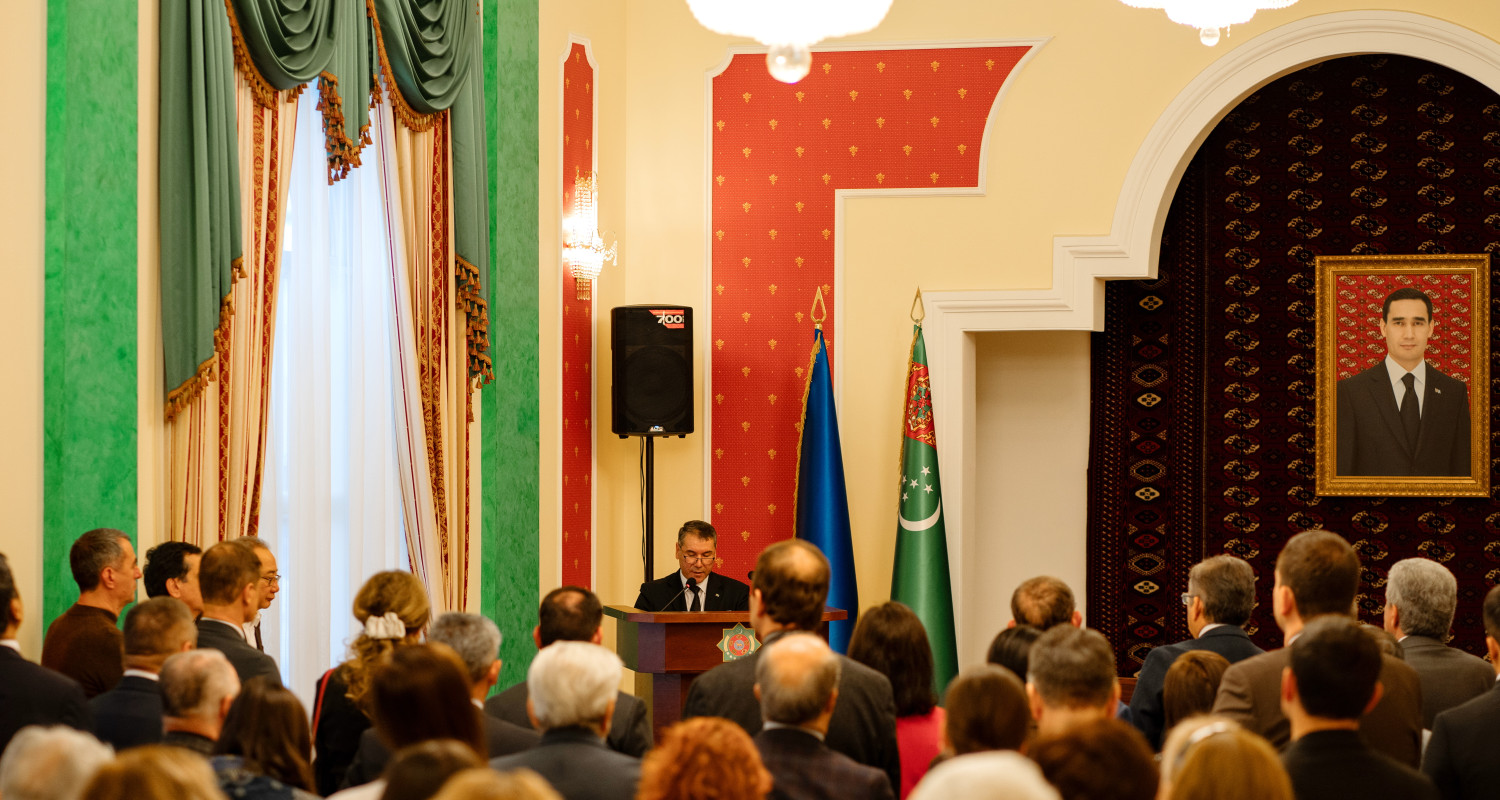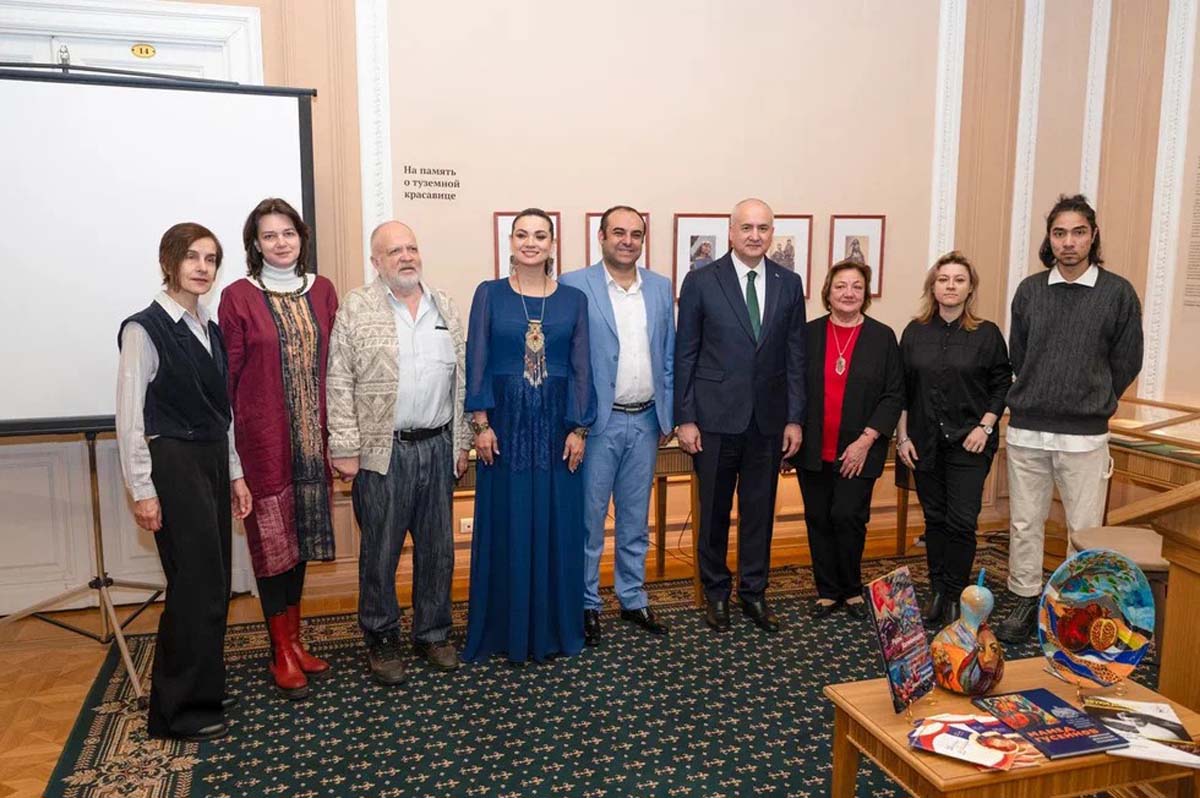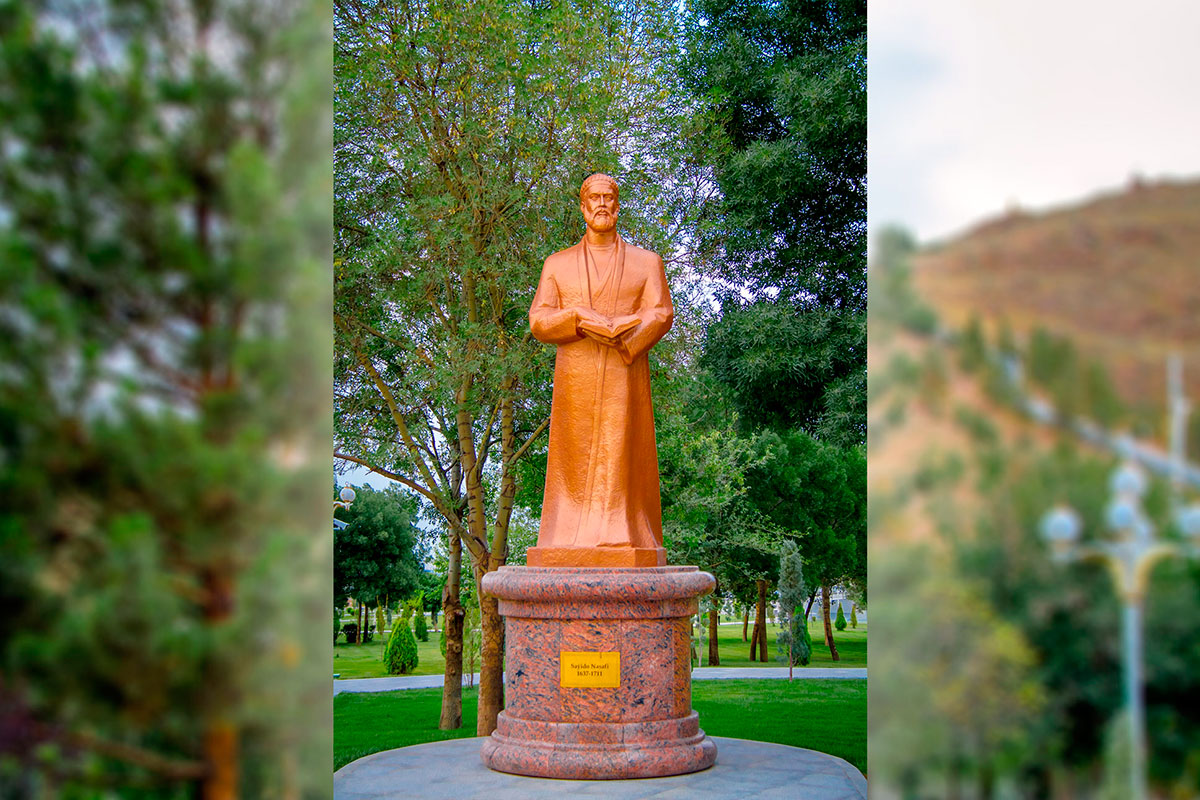The only international illustrated magazine about Turkmenistan in the Russian information space dedicated its first issue this year to the 300th anniversary of Magtymguly Fragi.
Materials varied in subject matter reveal the role of the great classical poet and philosopher in the life of the Turkmen people, the artistic perfection of his poetry and innovative contribution to the development of the Turkmen language, the influence of his ideas on the formation of a culture of peaceful dialogue, which is promoted at the international level by neutral Turkmenistan.

The issue opens with an article by Mikhail Pereplesnin «In the name of Magtymguly», which emphasizes that the philosophical component of the great poet’s work, his voice in defense of peace, justice, humanism, friendship, patriotism, openness and respect for all peoples - all this is included in the genetic code of the Turkmens. And today, with the name of Magtymguly, inspired by his ideas and views, Turkmenistan is actively establishing and expanding partnerships and interaction with other states.
Russian writer, publicist and literary critic Ivan Golubnichiy, also known as a translator of the poems of Magtymguly Fragi, Mollanepes and Andalyp and the famous literary monument «Sermon» by Dovletmamet Azady into Russian, shares his thoughts about Magtymguly’s work in the article «The Voice of the Poet – the Voice of the People». The author notes that the work of Magtymguly Fragi represents the highest point in the development of Turkmen poetry, and today it continues to have an effective influence on the formation and strengthening of the national self-awareness of the Turkmen people. The poetry of Magtymguly Fragi instills in the younger generations of Turkmens a sense of patriotism, commitment to traditional values, a humanistic worldview and a desire for enlightenment. Considering that the significance of Magtymguly Fragi for Turkmen literature is comparable to the significance of the great genius Alexander Sergeevich Pushkin for Russian literature, Ivan Golubnichiy writes: «Just like Pushkin, Magtymguly made a revolution in the literary language of his native people».
The reader will find a lot of interesting information about the life path and fate of Magtymguly Fragi in the article by Ruslan Myradov «Times have no power over the ligature of immortal lines». It says that in the literary heritage of the Muslim world of the 18th century, philosophical poetry and lyrics reached their highest rise precisely in the work of Magtymguly. «Even during his lifetime, he became famous among his people, who had long loved and knew how to appreciate the songs of Bagshy, but his passionate attention and love for Magtymguly was special. For the first time, his poems reflected with such liveliness, completeness and involvement the tragedy of the life of the Turkmens, their aspirations and thoughts, sorrows and dreams».
The articles by Maral Kajarova «The Greatness of the Image» and Jennet Karanova «Reflections in the Mirror of Painting» are devoted to the details of the creation of the artistic image of the great son of the Turkmen people in sculpture and painting. Speaking about the majestic monument to Magtymguly Fragi, the opening of which is timed to coincide with the 300th anniversary of the birth of the great master of words, Maral Kajarova notes that the 60-meter sculpture will become a symbol that the poet, his soul and thoughts will always be honored as something beautiful and sublime. And the interest in the image of Magtymguly by the country’s leading painters continues in the works of new generations of Turkmen artists who are trying to comprehend the depth of his poetry and philosophical thought. As Jennet Karanova writes, «a poet and philosopher, a teacher, a prophet and the soul of the people - this is how the Turkmen Magtymguly Fragi, who lived and wrote poetry in the 18th century, was preserved in the picturesque works and in the memory».
Allaberdi Niyazov’s article «Feel the magic of magical poems» provides specific examples of the fact that the personality of Magtymguly Fragi, his life and work at all times possessed a magical power that attracted, like a magnet, the special attention of numerous researchers, including foreign scientists and writers. Another material by the same author, «Echo of the Printed Word», is devoted to the publication of Magtymguly’s works in foreign languages. As Allaberdi Niyazov writes, Magtymguly’s poetry has always remained and remains the focus of attention of publishers who contribute to understanding the poetic world of Magtymguly. In connection with the 300th anniversary, as in past anniversary celebrations, new editions of Magtymguly’s poems are being published and prepared for release in many countries around the world.
The interest of readers will undoubtedly be attracted by Allanazar Sopyyev’s article «The folk path to him will not be overgrown» about the history of the creation of the unique Magtymguly Fragi Museum in his homeland. In a rather intimate, almost homely atmosphere, ancient manuscripts and lithographic publications of the 19th – early 20th centuries are exhibited there, as well as the poet’s poetry collections, including their translations, and books about him, published over the past decades in many languages of the world. Describing the exhibits in various halls of the museum, the author concludes that everything in the museum breathes history, reminiscent of the material environment in which the great Magtymguly Fragi lived and worked.








